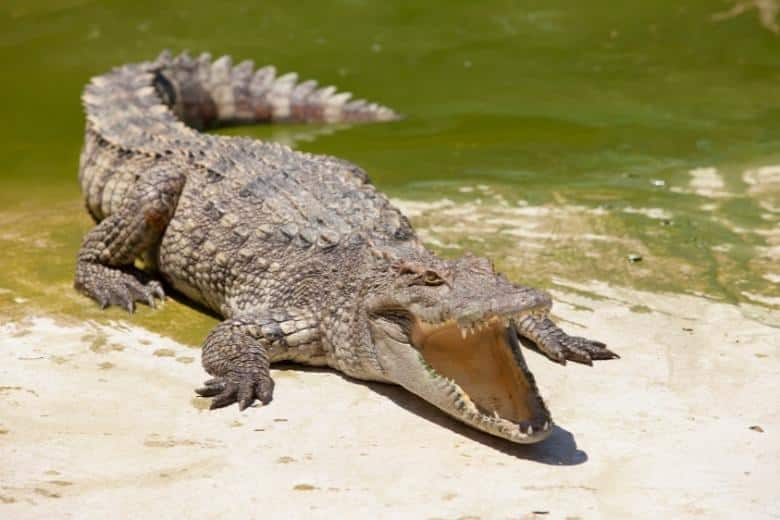Ants are among the most common insects on Earth and can be found in almost every ecosystem. Despite their small size, they play a crucial role in the ecosystem as decomposers, soil engineers, and pollinators. Ants are also a rich source of food for many predators, including insects, birds, amphibians, and mammals.
In this article, we will explore the different types of predators that eat ants and the role that ants play in the diet of these predators. We will also discuss the importance of ants in the ecosystem and their interactions with other species.
Insects That Eat Ants
Antlions
Antlions are insects that resemble dragonflies and are commonly found in sandy or dry areas. They use their jaws to catch ants and other insects, and they are considered an important predator of ants. The antlion larva digs a cone-shaped pit in the sand and waits for ants to fall in. The antlion then attacks and devours the trapped ant.
Assassin bugs
Assassin bugs are predatory insects that can be found in various environments around the world. They have a long proboscis that they use to inject venom into their prey, including ants. Assassin bugs are ambush predators that wait patiently for their prey before striking.
Mantises
Mantises are insects that are known for their impressive hunting skills. They are ambush predators and have strong forelegs that they use to catch and kill their prey. Mantises feed on a variety of insects, including ants.
Beetles
Beetles are one of the largest groups of insects, and many species feed on ants. Ground beetles, for example, are known to feed on ant larvae and pupae, while rove beetles feed on adult ants.
Other Invertebrates That Eat Ants
Spiders
Spiders are known for their predatory behavior, and many species feed on ants. Jumping spiders, for example, are known to feed on ants, and some species have even developed a specialized hunting technique for catching them.
Scorpions
Scorpions are arachnids that are commonly found in dry areas around the world. They feed on a variety of insects, including ants. Scorpions use their pincers to catch their prey and inject venom to paralyze them.
Centipedes
Centipedes are invertebrates that have many legs and are often mistaken for insects. They feed on a variety of small animals, including ants. Centipedes are fast-moving predators that use their legs to catch their prey and inject venom to immobilize them.
Vertebrates That Eat Ants
Birds
Birds are important predators of ants, and many species feed on them. Woodpeckers, for example, are known to feed on carpenter ants, while nuthatches feed on ants and other insects that they find on tree trunks.
Reptiles
Reptiles, including lizards and snakes, are also known to feed on ants. Many species of lizards, such as the horned lizard, feed on ants and other insects. Snakes, on the other hand, may feed on ants as part of their diet, but they are not considered
Amphibians
Amphibians, including frogs and toads, are known to feed on ants. They are mostly opportunistic predators and may feed on ants that they come across while hunting for other prey. Some species of frogs and toads have also been known to feed on ant larvae and pupae.
Mammals
Mammals are among the most important predators of ants. Anteaters, for example, have evolved to feed almost exclusively on ants and termites. Other mammals, including aardvarks, pangolins, and some species of primates, also feed on ants as part of their diet.
The Role of Ants in the Diet of Predators
Ants are an important part of the diet of many predators. They are a rich source of protein and other nutrients and are often easy to catch. Many predators have evolved specialized adaptations to help them catch and consume ants, such as the long tongues of anteaters or the specialized jaws of antlions.
Ants also play an important role in the ecosystem as decomposers and soil engineers. They help to break down organic matter and aerate the soil, making it more fertile. Ants are also important pollinators and seed dispersers, helping to maintain the diversity of plant species in many ecosystems.
FAQs
- Why do predators eat ants?
- Predators eat ants because they are a rich source of protein and other nutrients.
- Are ants easy to catch?
- Yes, ants are often easy to catch because they are small and slow-moving.
- Do all predators that eat ants have specialized adaptations?
- No, not all predators that eat ants have specialized adaptations. Some predators, such as birds and mammals, may simply catch and eat ants opportunistically.
- Do ants have any defenses against predators?
- Yes, ants have a variety of defenses against predators, including chemical defenses and the ability to swarm and attack in large numbers.
- Are ants important for the ecosystem?
- Yes, ants play an important role in the ecosystem as decomposers, soil engineers, and pollinators.
Conclusion
In conclusion, ants are an important part of the ecosystem and are preyed upon by a wide range of predators. From insects to mammals, many animals have evolved specialized adaptations to help them catch and consume ants. Despite their importance as prey, ants also play a vital role in the ecosystem as decomposers, soil engineers, and pollinators.

